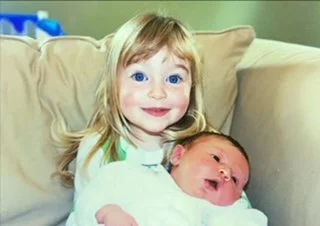By Andrea Gilats, author of an important new memoir, After Effects: A Memoir of Complicated Grief .
My beloved husband, Thomas Dayton, died in 1998 at the age of fifty-two, ending his five-month battle with cancer. As you can imagine, my life changed dramatically at that point. To put it bluntly, I grieved intensely for nearly ten years and lived with unresolved grief for ten more.
After Tom’s funeral, I naively expected that each day I would feel better than the day before, and that after a few months or perhaps a year, I would somehow be myself again. Thankfully, for many of us, that is the course our grief takes. We are able to recover from even our most grievous losses by traveling a relatively straightforward psychological progression from the actual loss (bereavement), to our responses to that loss (grief), to learning to live with our loss (mourning), and to the return to a satisfying life (recovery). Along this path we might encounter ditches and detours, but experts agree that recovery from “active” grief is as normal as grief itself. But what if we cannot meet this expectation? What if this so-called recovery is somehow disrupted or undermined? What if these “normal” processes take an abnormally long time to take hold? What if they fail us altogether? What if something inside us will not allow us to release ourselves and move forward?
These were the questions bubbling up within me as I tried to write about my grief experience. As I wrote, I researched, and eventually, just by chance, I encountered the pioneering work of Dr. M. Katherine Shear, the founder and director of Columbia University’s Center for Complicated Grief. Through her work, I discovered that for nearly two decades, I had suffered from a known disorder called “complicated grief”: acute grief that is abnormally intense and prolonged. Even though complicated grief affects up to one in seven bereaved people, many of them never recognize that the course of their grief is not normal, as I did not, and suffer in silence, as I did.
Dr. Shear tells us that grief is considered complicated if it continues to be acute for at least a year after the loss and if the bereaved person is experiencing persistent yearning or longing for the person who has died, a recurring desire to die in order to be reunited with that person, refusal to believe that the grieving person’s loved one is really gone forever, inappropriately intense reactions to memories of the person who has died, and “distress or impairment in social, occupational, or other important areas of functioning.”
For years, I suffered from all those painful, debilitating feelings. I had had toothaches, bee stings, and blistering sunburns; I had had influenza, the vomiting flu, and, as a four-year-old, a burning ear infection. I had had my heart broken more than once, but I had never felt pain, whether physical or emotional, that was so excruciating I could not bear it. Yet after Tom died, the unbearable became real. There I was, feeling that I would either explode or implode virtually every minute of every day, and there was no respite, there was no relief, there was no one to rescue me.
I learned then that when the spirit is so deeply wounded, the body can’t help but follow suit. Why could I not keep my food down? Why did I feel such extreme fatigue every single day? Why could I not concentrate long enough to make a grocery list? Tom was gone from my sight and I knew what constant sorrow was, but I never questioned these physical changes, even though they were ruling my life.
Had I thought to look into it, I would have learned that losing a close loved one is a singularly powerful source of stress, and stress can weaken the immune system. So while grief is not normally viewed as an illness unto itself—after all, losing our loved ones is an inevitable part of the human life cycle—it can make us physically sick. While grieving, we are more likely to catch colds, have our colds degrade into pneumonia, be plagued with insomnia when we most need to maintain our meager energy, and suffer from anxiety that leaves us short of breath, which makes us feel panic, which makes our hearts beat too fast, which makes us feel fear.
There is even a condition called broken heart syndrome whose symptoms mimic those of a heart attack, but without permanent cardiovascular damage. Related to broken heart syndrome is the “widowhood effect” that most commonly affects older couples and is realized when one spouse dies within months of the other. Researchers attribute this to the fact that grief causes inflammation levels in the body to rise, leading to (actual) heart attacks, strokes, and diseases like cancer that result in premature death. Unfortunately, I was a living example of this phenomenon.
I was born with what people used to call a “sensitive stomach.” I had lived with off-and-on-diarrhea, as well as related unpleasant symptoms, for most of my life, but I had learned to adapt to my condition. Then, soon after Tom died, my digestive problems worsened precipitously. My daily bowel movements doubled from about six to about twelve each day, and some days I defecated fifteen times. Time and time again, my then doctor tried to diagnose what had become a significant disability. Finally, after seven years of inconclusive tests and failed guesses, she sent me for a colonoscopy, which confirmed that I had Crohn’s disease, an auto-immune disorder characterized by inflammation of the bowel.
Not only did I have a diagnosis, I was facing the prospect of surgery to remove two and a half inches of what the surgeon called “diseased bowel” near my terminal ilium, the place where my small and large intestines meet. Thankfully, I came through the surgery without incident and was sent home from the hospital to complete my recovery. I had been home for only two or three days when I began to feel feverish, out of sorts, fuzzy-headed, and exceptionally tired. I called my surgeon, who immediately sent me for a CT scan to determine whether my surgery site was infected. Abscesses are common after bowel surgeries, and sure enough, I had one. I was sent directly from the imaging clinic to the hospital, where I would receive intravenous antibiotics.
I was assigned to the third bed in a room originally meant for two patients. My nearest roommate was a young woman who had obviously been terribly injured. Her face and neck were covered in bruises, and her left arm, including her entire left hand, was wrapped in a thick bandage. Her bed was only about five feet from mine, so I couldn’t help but overhear conversations at her bedside. The first of these was between two hospital staff women; one may have been a nurse. As the poor patient rested, awake but silent, the two confirmed to each other that the patient was scheduled for surgery the next morning to have her left hand rebuilt. Apparently, it had been crushed in a brutal beating she had received the night before at the hands of a boyfriend or husband.
Shortly thereafter, two different women came to her bedside and began a conversation with her. Very quickly, I came to understand that one was a social worker and the other a translator: my roommate spoke no English, and her social worker spoke no Spanish. Her heartbreaking story was that she had indeed been abused by her live-in boyfriend and was now suffering from the worst of the frequent beatings she had received at his hand. Somehow, she had managed to escape from their home and get to the emergency room, but her toddler daughter was still with him.
She could not return to him: she feared for her life. “What will happen to my daughter?” she asked, and then, probably rhetorically, “Where will I go? I have no place to live.” The social worker assured her that they would be sending child protection workers to get her daughter, and that she and her daughter would be placed together in a shelter where they would be safe. For now, she should not worry; she should just concentrate on her recovery. The social worker assured her that she was safe in the hospital. After this brief interview, the two left, promising to see her again the next day.
Moments later, a soft-spoken young nurse came to take my roommate to the bathroom, and having just taken my sleeping pill, I dropped off to sleep. When I awoke the next morning, my roommate had already been taken to surgery. I never saw her again.
It was not the abscess at my surgery site that had put me in the hospital the previous afternoon, it was the fact that I was allergic to the antibiotics my surgeon had prescribed. In the light of morning, this obvious fact finally dawned on me. I knew then what I had to do. I left the hospital under my sister’s care, discontinued the offending drugs, and within thirty-six hours, I began to feel human again.
When living begins to look more promising than dying, it occurs to you at last that through your own suffering, you have learned more about the suffering of strangers, a lesson that your grief had kept from you. You think of the young woman in the hospital, and you feel more acutely how she must have suffered at the hands of her boyfriend. You feel no shame for the attention you paid to your own suffering; you simply start recovering your ability to live beyond it.
Andrea Gilats is the author of an important new memoir, After Effects: A Memoir of Complicated Grief (University of Minnesota Press, 2022), which Dr. M. Katherine Shear called “a beautifully written story of the heartbreaking problem of complicated grief,” and Restoring Flexibility: A Yoga-Based Practice to Increase Mobility at Any Age (Ulysses Press, 2015). A writer, educator, artist, and former yoga teacher, she is currently at work on a second memoir, this one about entering old age during the coronavirus pandemic. You can learn more about Andrea and her books at www.andreagilats.com.










